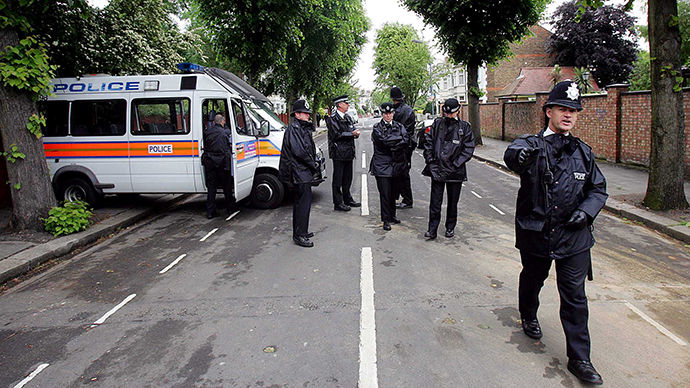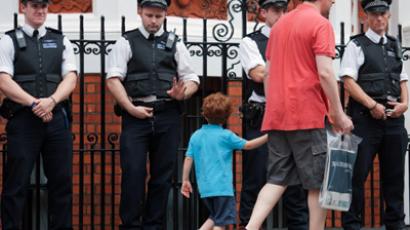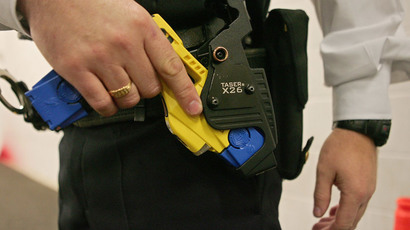Met police spied on UK justice campaigns- report

Undercover officers gathered and retained information on 17 justice campaigns, including a family whose son was shot dead by the Metropolitan Police, a new report has found.
The damning report released by Operation Herne, found that the Special Demonstrations Squad (SDS), a specialist unit of undercover police officers, monitored the activity of campaigners protesting against the Met between 1970-2005.
While the report did not find clear evidence that the SDS deliberately targeted justice campaign groups, it heavily criticised the retention of information that did not have a clear link to crime or domestic extremism.
Most of the campaigns involved in the spying operation involved black males, who were either died or were poorly treated whilst in contact with the police.
While the report does not name all the campaigns targeted by the
SDS, it does mention the family of Jean Charles de Menezes, who
was shot to death by police in 2005, after he was suspected to be
a suicide bomber.
Menezes, a Brazillian electrician living in Stockwell, London,
was killed weeks after the July 7th terrorist attacks
in which 52 people were killed on London’s public transport
system.
The report also mentions surveillance of the Stephen Lawrence
campaign, who were highly critical of police conduct after his
murder in 1993, leading to accusations that the metropolitan
police were 'institutionally racist'.
The report goes on to say that the Met mismanaged the SDS unit,
turning a blind eye to inappropriate behaviour including officers
engaging in sexual relationships with female subjects they spied
on.
"Over the 40 years that the unit existed, senior Metropolitan
Police management of the day either knew nothing about the
existence and activities of the unit or, when they did, they
appeared to have allowed the SDS to exist in secret isolation in
a manner that was complacent and possibly negligent" the
report says.
According to the Operation’s leader, Chief Constable Mick Creedon, the campaigns targeted related to victims whose deaths came “as a result of deaths in police custody, following police contact and the victims of murders”.
CC Creedon also reaffirmed the Metropolitan Police’s commitment
to inform family members who were subject to surveillance,
admitting that it would be ‘distressing’ for bereaved families to
learn their details were secretly held.
"Unless the information could have prevented crime or
disorder it should not have been retained" He added.
Activists supporting Harry Stanley, who was shot dead by police
in 1999 and Ricky Reel, who was killed in a racially motivated
attack in 1997 were also targeted.
The report also accounted for an unnamed individual planning to
attend a funeral, despite the Met police acknowledging “there
was no intelligence to indicate that the funeral would have been
anything other than a dignified event”
Stating that the police operated outside their ‘nationally accepted guidelines’, The Met said it regretted "enormously" the distress caused, stating that information on campaigners that did not represent a national security threat should have been ‘weeded out’.
However, in an interview with BBC Radio 4, Creedon defended the SDS by saying its actions were "never, ever direct spying or undercover activity against these very peaceful, legitimate campaign groups".
He also said that spying was against the remit of the SDS, and that their purpose was to “ stop protest and try and make sure the capital was a safer place to live in."
Created in 1968, the SDS was initially funded by the Home Office in response to mass Anti-Vietnam war demonstrations in London, before being deployed to investigate other protests and public order demonstrations.
The unit was handed to the MPS, with the responsibility to inform authorities about suspected extremist organisations.
Following the publication of the report, a spokesperson for the De Menezes family called the Met’s spying operations of campaign groups “shameful”, and are considering taking legal action against Scotland Yard.
"It begs the question - what exactly were the police spying for?
We can only assume they were gathering information in an attempt
to discredit the family's campaign for justice in order to
deflect accountability for their own failings” they said.
The investigation is expected to continue for at least a year and
will later report on the culture of the SDS in other UK
operations.














